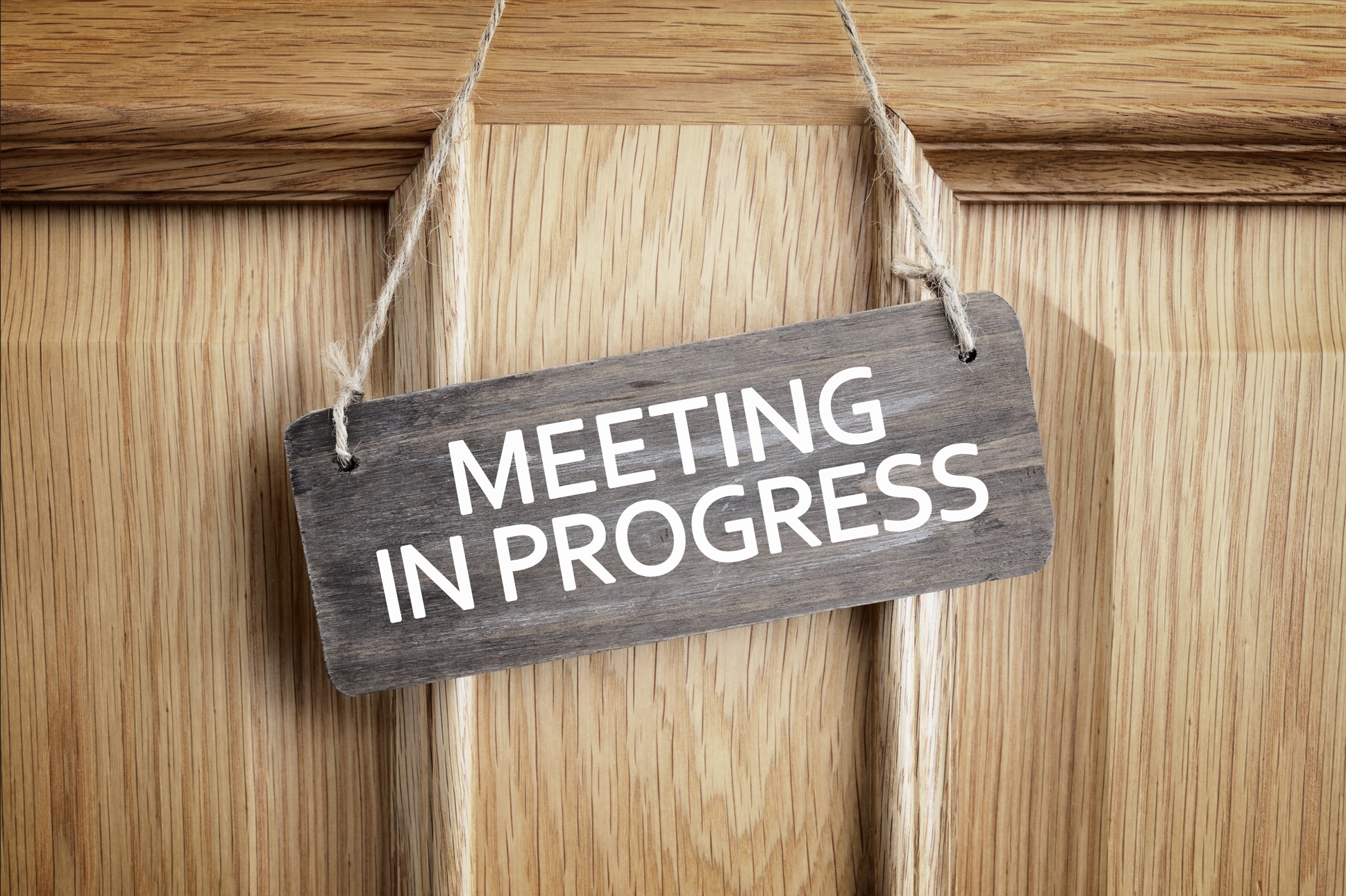When you think of attending an upcoming meeting – are you excited, or do you get a feeling of dread?
I’ve experienced both and have determined that the secret to great meetings is multifold:
First, what is the topic? Is it clearly defined? Or is the meeting you are attending a regularly scheduled weekly or monthly meeting that is on the calendar? When I ran my company, I had weekly management meetings, but I never hesitated to cancel a meeting if there were no known issues to discuss. Or if it was the busiest week of the year and gathering all my managers in a conference room for an hour would detract from actual money-making business activity. Good leaders do not keep standing meetings on the calendar when there is nothing significant to discuss. If it’s an “update meeting” – is it possible to have everyone send an email recap with their update?
Second, are the correct people invited to the meeting? Another issue with standing meetings (such as a committee or department meeting) is that not everyone needs to attend every time. But sometimes the fear of missing out (FOMO) or the fear of offending someone by un-inviting them to the meeting causes hurt feelings. Get over it! Good leaders would prefer to put time back on people’s calendars by not forcing them to attend meetings when their attendance is not critical. And be sure someone takes notes and let everyone know that you will send out the meeting minutes promptly.
Third, is there an agenda for the meeting that is distributed in advance? One of the best practices I’ve seen is the agenda that has the times included as part of the agenda. For example:
8:00am – 8:15am Get coffee, water, find a seat
8:15am – 8:30am Introductions of all team members and review of agenda
8:30am – 9:20am Presentation by Guest Speaker, including Q & A
9:20am – 9:30am Break
This works for virtual or in-person meetings, for small or large groups. It helps prepare everyone’s mindset for staying on time, and by publishing an agenda ahead of time, attendees can do their homework, do pre-reading, or bring relevant information with them to the meeting.
Fourth, what is the role of the meeting leader? Some leaders like to hear themselves talk. I recall one of my company managers called weekly meetings of their department team, and basically did all the talking for the entire meeting. This manager didn’t really want other people’s input, thought their own ideas were the best, but went through the motions of having a regular “team” meeting, thinking that’s how you develop a team. I learned many years ago that the leader of a meeting’s job is really to encourage attendees to offer their ideas, be supportive but honest with feedback, and to make sure everyone in attendance participates. *** When I lead meetings, I am always cognizant of giving everyone the chance to contribute. Some people have a personal habit of not speaking up unless asked directly to do so. So, before I change topics or end a meeting, I always call on those who have not spoken, by name, and ask them if they have any comments. It is not unusual to get some of the best feedback and ideas when I’ve taken the time to do this.
If you develop the reputation as a paid or volunteer leader, who runs great meetings, where everyone is encouraged and actually participates, then people will want to work with you and support you.
In my practice as an executive and business coach, I always encourage my clients to rehearse what they plan to say to kick-off their meetings (on your morning drive or morning walk is a good time to practice out loud), and to be their own devil’s advocate for their skeptical team members who will bring up off topic, or fixed mindset questions. Most of the concerns that get voiced in a meeting setting can be anticipated – all you have to do is visualize the participants and their point of view and then practice how you will answer their questions. Remember, it’s always acceptable to say, “That’s an interesting question and I don’t have the answer right now. Let me make a note of it, and I will follow up later.”
We all have the same amount of time each week – 168 hours. Why not ensure that the time you spend in meetings is productive, so you have plenty of time to invest in other things that are important to you?
Onward and Upward,

If you’re enjoying what you’re reading, please consider recommending it to others. They can sign up here





